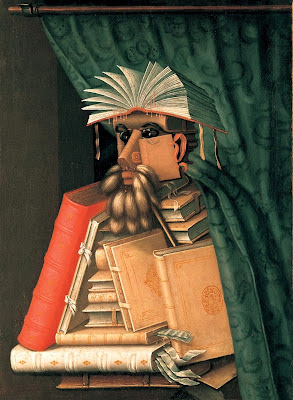For the first time ever, actual science can be derived from reading habits.
Thanks to e-books, companies like Amazon and B&N now know whether people are actually reading the e-books they buy. Better yet, they even know where in books people are leaving off, which books are most likely to be read all the way through, and the speed people are reading them.
As Mike Shatzkin points out, this is important knowledge that the e-booksellers have and publishers do not. It could be more important to know whether people finish a bestselling book than how many copies it sells. If people stop reading and start reading something else instead, it could be a sign people might not be as enthusiastic for that author’s next book. And if people read something very quickly it could be a sign of enthusiasm.
The possibilities don’t stop there. Could authors improve if they knew at which spots in their book people are dropping off?
Needless to say, this frontier is not without its controversy. Readers may not like to have their e-reading habits snooped, even if it’s done anonymously. Authors may be frustrated to be confronted with yet another backwards-looking tool that can pigeonhole them based on their past books without considering whether the new one is really good. And publishers may be frustrated that Amazon and the other e-booksellers possesses this competitive advantage.
I’m excited to have any new insight available, provided this information is made available to authors. It hardly seems fair if this information is hoarded by the e-booksllers if it’s being used to make decisions about whether and how an author is signed or promoted. And, of course, care must be taken to ensure that reader privacy is protected.
What about you? Would you want to know where people are leaving off in your book? Is this new technology exciting or intrusive?
Art: The Librarian by Giuseppe Arcimbolo




I suspect most people who buy books for themselves don't read all of them anyway. That's why titles and covers and placement are so important. I'm sure every publisher knows this already and banks on it.
This could be really interesting for authors if it showed a lot of people stopped at a certain point. It might indicate that part of the story was a chore to get through, or angered people, or something else, and that insight could help the author write better novels from then on. Of course, that would require the author to make a lot of assumptions about why people stopped, though, especially if there were no prior reservations about that point in the story. That could be a bit dangerous and maddening.
Really is my business and my business alone. Are we never alone anymore. Are "they" always there. BIG BROTHER!
Sorry I stopped at that certain point in the book, but I had to catch a train.
Hope the author doesn't change the scenes here due to my putting the book down while I picked up the baby. I love the book but am so busy with life's distractions right now.
Better finish the book, they're watching, and I really like this author.
I'll read a few more pages. Oh, now I have to cook dinner.
So you see, it's silly!
Oh this author I don't care for, I'll just read page 1 and 2 and drop it, then tell my clan to do the same.
Really some of the stuff that could go on…
And it's creepy having no privacy.
I also wonder if sales in e-readers might actually drop due to this new awareness.
So what are you going to do?
I'm a writer, but the first thing I was concerned about was whether we retained our privacy when we read e-books. As long as we do, then it sounds great.
So would authors be willing to pay Amazon for this data? If so they may be convinced to sell statistics of individual books to their respective authors.
The privacy concern is so so, with this you always have the choice of not using the e reader.
There are much bigger privacy violations out there if one wants to concern him or herself with that.